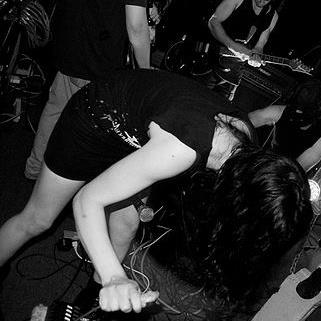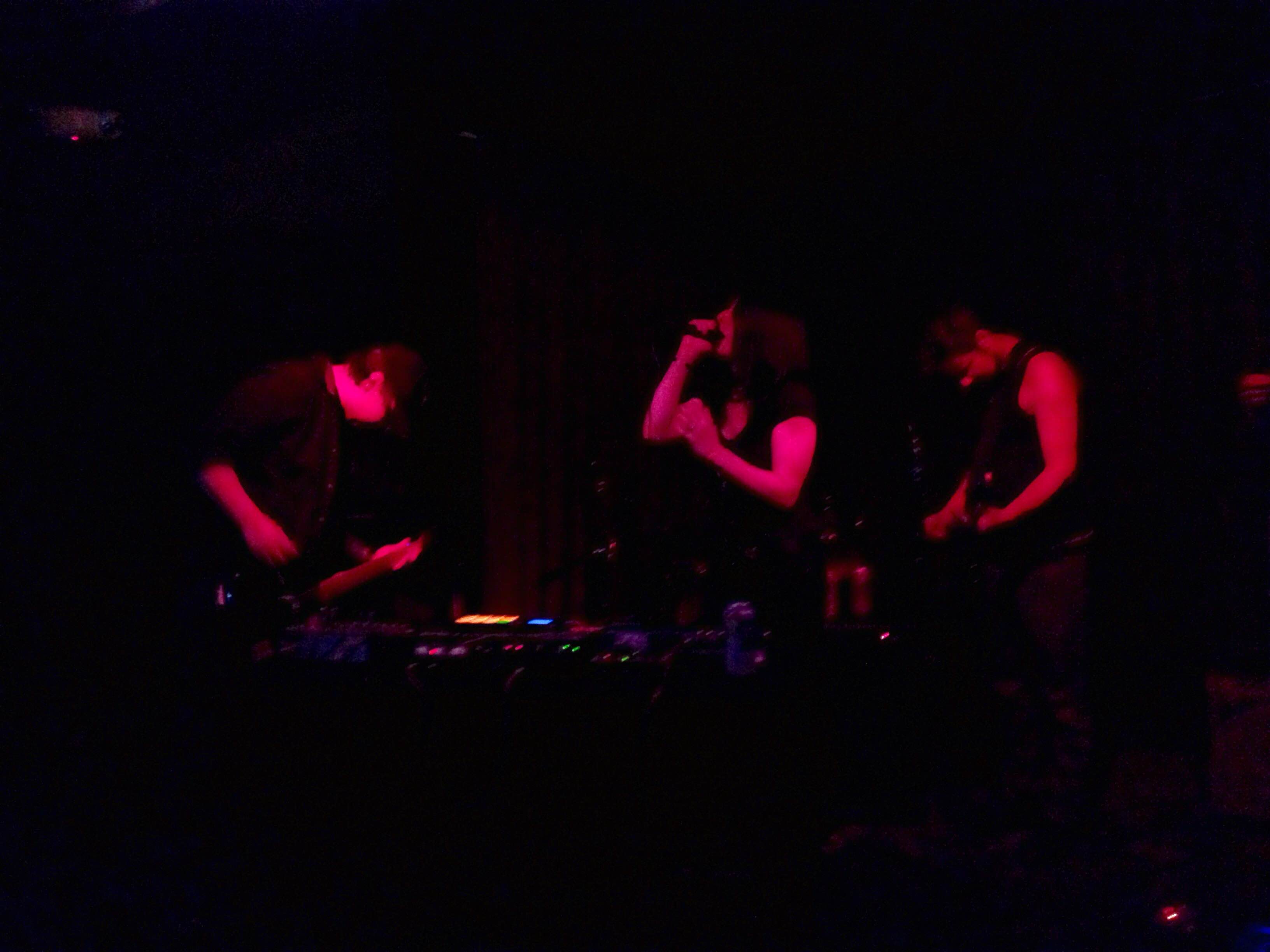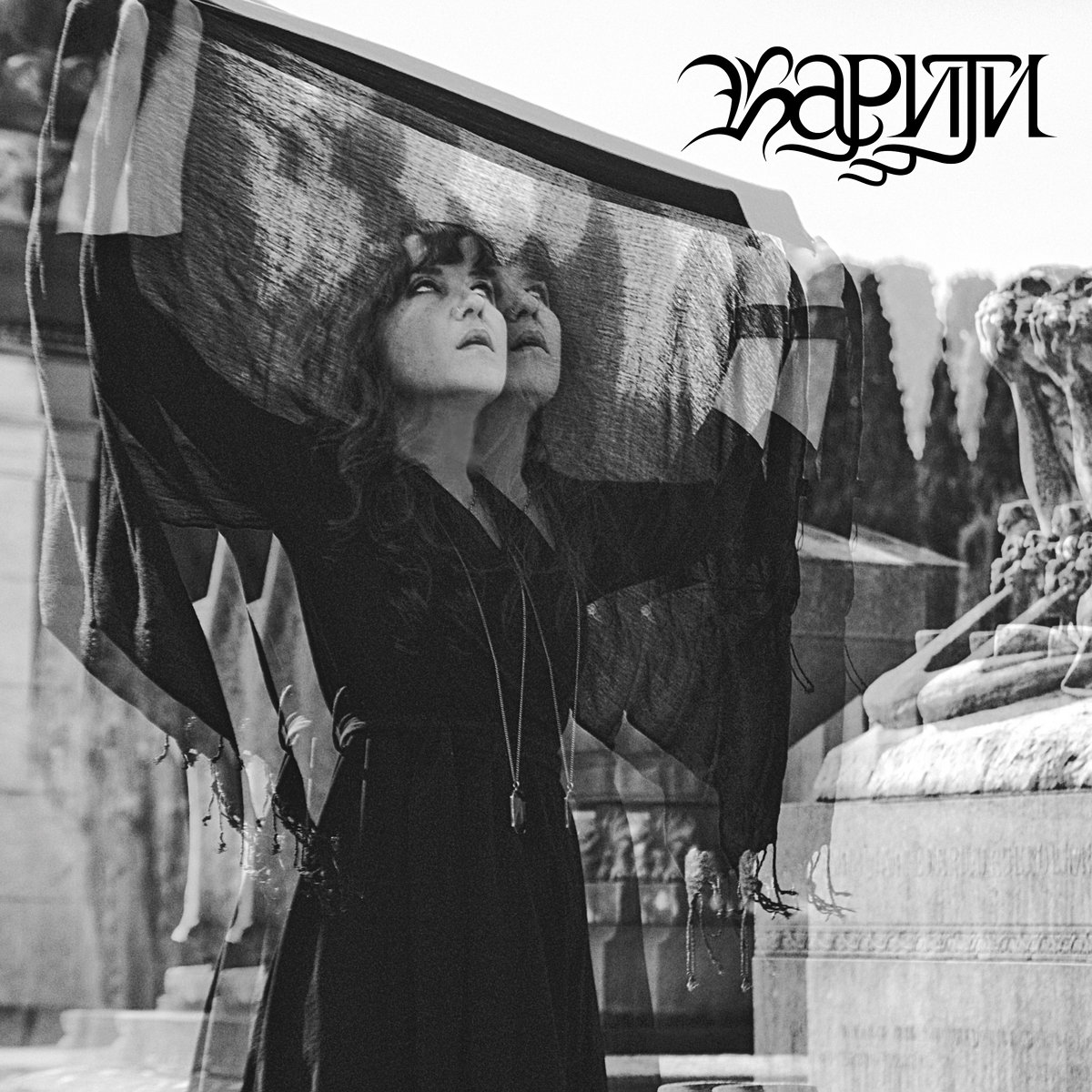Interview with Sewer Goddess (Worship the Filth Below)

With all the noise we’re finally getting again, it’s good to have an interview surrounding this recent proclamation of the power electronics revolution. Of course, though, you know us, we only mean the good stuff. The bad stuff, yeah, we’ll sometimes review it, but sadly noise is filled with lots of it because everyone thinks they can do it. Hey, just get a few pedals, jump all over those on stage in some sort of revealing attire regardless of gender, take it all off in a suitcase, and then remind everyone to visit the “merch” table to buy their homemade C60s that are actually copies of Twilight books-on-tape recorded over and spray-painted. Oh we could go on about that kind of noise “artist” for a very long time, but today we’re talking with and about one who’s actually good, who understands the process of creation and the constraints of the genre. It’s not all about assaulting the ears, or the eyes, it’s about crafting, as any music is. Don’t be fooled, only a few can do it well, and Sewer Goddess is one of the few. We sat down with Kristen Rose to learn about her latest release, which we reviewed this year, upcoming work, and how she does what she does.
 Deaf Sparrow – What kind of background do you have in music, if any (classical piano, earlier bands, etc.)? This is our usually opener because we’re always curious to see where musicians are coming from, sometimes it’s interesting, but quite often I’ll find them say stuff like ‘Metallica’ or other shocking nonsense.
Deaf Sparrow – What kind of background do you have in music, if any (classical piano, earlier bands, etc.)? This is our usually opener because we’re always curious to see where musicians are coming from, sometimes it’s interesting, but quite often I’ll find them say stuff like ‘Metallica’ or other shocking nonsense.
Sewer Goddess – Well I wouldn’t say Metallica was my gateway into music, but ‘Kill ‘Em All’ is a decent album. My apologies if that doesn’t interest you. Haha! I have no background in traditional music and Sewer Goddess has been my main project. I started with (and still mainly use) junky, handed-down equipment. As a teenager, I was attracted to dark, eccentric music. Skinny Puppy, Mr. Bungle and Aphex Twin were some of the first bands I ‘got into’.
DS – How did Sewer Goddess itself begin and why?
SG – Sewer Goddess began because of my interest in extreme music, a desire contribute to the Industrial scene and needing a creative outlet of my own to focus my energies on. I have been recording since 2005 and started releasing material under the Sewer Goddess moniker in 2006.
 DS – You’ve done a number of releases and singles over the years, but in the past five you seem to have really started to develop as a musician. Early work, like Dejection Veil, retain that same sense of dark industrial founds in your recent work, but more primitive, if that makes sense without sounding offensive. From 2006 until now you seem to have developed into something more. What made you decide to go from the usual one-musician approach of most noise to a full band?
DS – You’ve done a number of releases and singles over the years, but in the past five you seem to have really started to develop as a musician. Early work, like Dejection Veil, retain that same sense of dark industrial founds in your recent work, but more primitive, if that makes sense without sounding offensive. From 2006 until now you seem to have developed into something more. What made you decide to go from the usual one-musician approach of most noise to a full band?
SG – No, that’s not offensive at all. I have some very talented friends that taught me a lot over the past 10 years. I’m just grateful for their support with Sewer Goddess. I think a lot of solo projects become overly self-indulgent and trite. The outside support from bandmates brings new ideas and various technical strengths to the table which has helped push the boundaries of our compositions. Besides that, I think we achieve a heavier and more detailed sound live and in the studio.
DS – Yeah, definitely agree with you on your response about the full band thing. So many “noise” artists always go solo, and it often gets despicably ugly. Unless they’re someone like, let’s say, Aube, who had a special theme for each release, there’s only so much you can hear of the same thing. So we can assume you plan on taking this idea of a full-band further and developing Sewer Goddess even more as time goes on?
SG – Yes, there are obviously exceptions. They just tend to be few and far between. It’s always hard for me to say what the future of Sewer Goddess will hold; however, we do plan on progressing as a band.
DS – Tell us some about your process in creating music then and now. How do you start? Do you take a thematic focus or do you, perhaps like Masonna, write whatever and find the good in it later and then piece it together in album form?
 SG – My compositions start with a prewritten pattern usually created with a synth or drum machine. I don’t really go into the writing process with an idea of what the material ‘should’ sound like. It’s usually a very natural process.
SG – My compositions start with a prewritten pattern usually created with a synth or drum machine. I don’t really go into the writing process with an idea of what the material ‘should’ sound like. It’s usually a very natural process.
DS – What’s your feeling on samples? Some bands we’ve encountered in the past, like Thrill Kill Kult, are absolute masters of the art of the sample, others like Front Line Assembly should probably avoid it altogether. How do they fit into your overall approach, if you use them at all?
SG – We use samples all the time as they can be a powerful resource when trying to convey a theme.
DS – What was the process behind creating Painlust? I’m (editor) kind of “creative” with my reviews, and the feeling I personally got out of the whole thing was separate tracks, almost stand-alone, that symbolized different days of torture. That sounds a lot more cheese-laced written out than when I thought of it.
SG – Cheesy or not, that’s a great description for what I was trying to achieve with Painlust. The songs were written separately and meant to be strong enough to stand alone while maintaining the ability to flow together.
 DS – Do you plan on sticking with the full band for future releases? Any new work coming up?
DS – Do you plan on sticking with the full band for future releases? Any new work coming up?
SG – Yes, I do plan on Sewer Goddess continuing as a band for future albums. I might release some one-off solo eps too, but nothing major. Filth & Violence out of Finland and Terror out of Lithuania just co-released a collection CD of older Sewer Goddess works from 2008-2009, entitled ‘Hymns Of Infliction‘. I am also currently writing the base material for our next album ‘Zero Derma‘, but I have no idea when that will be finished. It’s basically a continuation of Painlust.
DS – When you tour do you tend to stay in one area or what are your usual routes of destruction? Fun stories from tours or stories about idiots while on tour? Those are always fun.
SG – Unfortunately, Sewer Goddess hasn’t toured due to financial difficulties. We’ve played a ton of one-off shows on the East Coast, but haven’t made it much further than that, mostly between Maine and New York, New England area.
DS – Now let’s talk a little about your live presentations. One thing that’s irritating about noise over the past few years, in spite of gender, whatever, is the banality of most of it. It’s usually a bunch of fools stomping on pedals they bring in a suitcase, screaming into a microphone, very little substance, attempts at being “confrontational” in various ways. The best are the ones that can do some of that but yet write actual music qua noise. Not so easy. Live it can be even more difficult, the usual approach is to “confront” the audience and sometimes even get violent, but that was old like twenty years ago. What kind of focus do you use for live performances in your current incarnation as Sewer Goddess or even before utilizing a full band?
 SG – Our main focus is on the sound itself and executing our songs accurately-whatever follows really depends on the crowd and venue.
SG – Our main focus is on the sound itself and executing our songs accurately-whatever follows really depends on the crowd and venue.
DS – So you have, obviously, played some live shows. Can you talk about any particularly interesting live performances you had, maybe a favorite or two? Any theatrics, visuals, or stuff like that?
SG – Although we have played many great local shows over the years, one of my absolute favorites was the 2009 Burning Fleshtival at the Red Light District in NYC (Video Above – Editor). While I wouldn’t say we were at our best sonically, the energy of the crowd and atmosphere of the ‘venue’ was amazing
DS – Thanks again for the interview, looking forward to new work and seeing where you take it. Please give a nice ending response so I don’t have to pretend like I got one, as we sometimes do hahahaah.
SG – Lol ‘and thank you for the interview. Cheers!’
Interview Conducted by Stanley Stepanic

